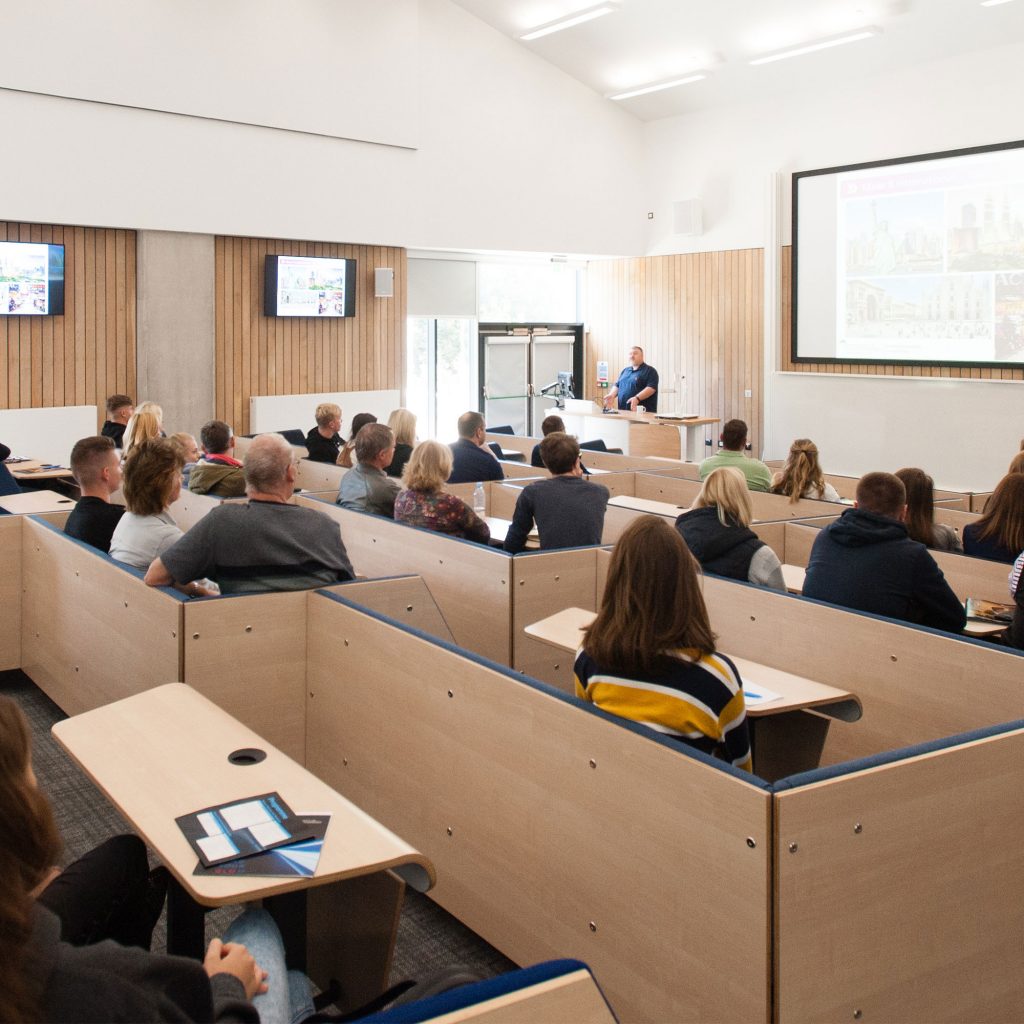Jump to: Quality principles | Course rating criteria | Example ratings
Quality principles
This framework of quality principles and associated rating criteria was developed at the University of Gloucestershire. They were designed to be ambitious – to help courses be consistent, focus on what matters most for an authentic EfS learning experience, and to mainstream this into course design.
It supports EfS to move out from the margins of course experiences, encouraging academic teams to integrate this into core course priorities and enable more students to experience this learning.
The key principles and the reasoning for them are:
- Joined-up sustainability learning
Authentic sustainability learning must connect people, planet, and profit – the pillars of sustainability that cross subject boundaries. Targeting only single issues, without making links for students, does not help to develop ‘systems thinking’ or true sustainability outcomes.
- Integrated into compulsory modules
Mainstreaming means targeting core course experiences, so all students can develop these skills. Optional modules offer partial responses and focused attention, but not all students take them and the sustainability focus may not transfer to core learning outcomes.
- Integrated across all levels of study
Quality learning across the course journey builds knowledge and capability in layers for effective integration. Opportunities can be taken to join dots from specialist focal points in the subject or profession, to the broader thinking and capabilities that support sustainability change.
- Integrated as part of assessment design
Assessments reflect the essential learning outcomes and main focus for student attention in learning. Opportunities can be taken to move from abstract knowledge to its application, supporting the development of change capability relevant to real-world practice and implementable solutions.
What are the principles?
Course rating criteria
Using the 4 quality principles, the course rating criteria tested were:
NO MEDAL – no relevant sustainability learning
No explicit sustainability learning – or issues are treated partially and separately, without links to the environment, e.g. taught content labelled ‘financial sustainability’ or ‘social sustainability’ but lacking environmental focus, or environmental focus without links to any social and economic view.
BRONZE - some relevant teaching
Taught content that shows an explicit joined-up sustainability focus, e.g. social concerns around equality or wellbeing are clearly linked to environmental justice and impacts, not treated as a separate issue.
SILVER - partial integration
- At undergraduate - an assessment where joined-up sustainability knowledge and subject knowledge are applied together, in at least one compulsory module or unit.
- At postgraduate – learning activity beyond just taught content either as formal assessment or skills development exercise, in one compulsory module or unit.
GOLD - fully mainstreamed:
- At undergraduate - an integrated learning process with at least one assessed element in core modules or units at each level of study.
- At postgraduate – an integrated learning process across the course, with one assessed element in a core module or unit.
How to rate your course
Example ratings
Anonymised examples of the criteria in practice were provided in the speed-learning tool used for road-testing, to help student raters see how to make judgements.


Second year undergraduate sport module
Experience – students explore the use of sport in international development and how sporting organisations respond to development needs e.g. social justice, equality or wellbeing.
Rating: no medal
Rationale – although this module touches on certain UN global goals (equalities, wellbeing) and takes an international perspective, an environmental dimension is missing.
First year undergraduate business module
Experience – students are introduced to the workings of one of the creative industries. The global goals framework and the concept of triple bottom line are used. Students are encouraged to think about how they can apply the goals in this industry.
Rating: Bronze
Rationale – good and relevant sustainability teaching, joining dots to the discipline and professional specialism. But there is no requirement for students to actively apply their insights into the issues.




Postgraduate programme in Education
Experience – Students attend a compulsory session with Education for Sustainability (EfS) focused content. They take part in class exercises requiring them to actively apply EfS thinking, and discuss and evaluate best EfS practice – but these exercises are not formally assessed.
Rating: Silver
Rationale – The course has relevant activities requiring students to make links to course-specific knowledge. It also applies sustainability to this professional, although the activity is not formally assessed (if it did, it would achieve Gold).
Undergraduate Architecture course
Experience – Sustainability is strong and clear in both module content and assessment at first year, second year and third year. Students identify relationships between people, environment and economy, often via live briefs with industry partners bringing an implementation lens.
Rating: Gold
Rationale – Students have relevant and assessed experiences at each level of the course. It blends professional knowledge with joined-up sustainability thinking and builds capability to deliver change.


Project foundations
Read more about the need this project aims to meet.
Road testing
Explore the road-testing responses.
Outcomes and resources
See the final ratings framework and how to use it.
